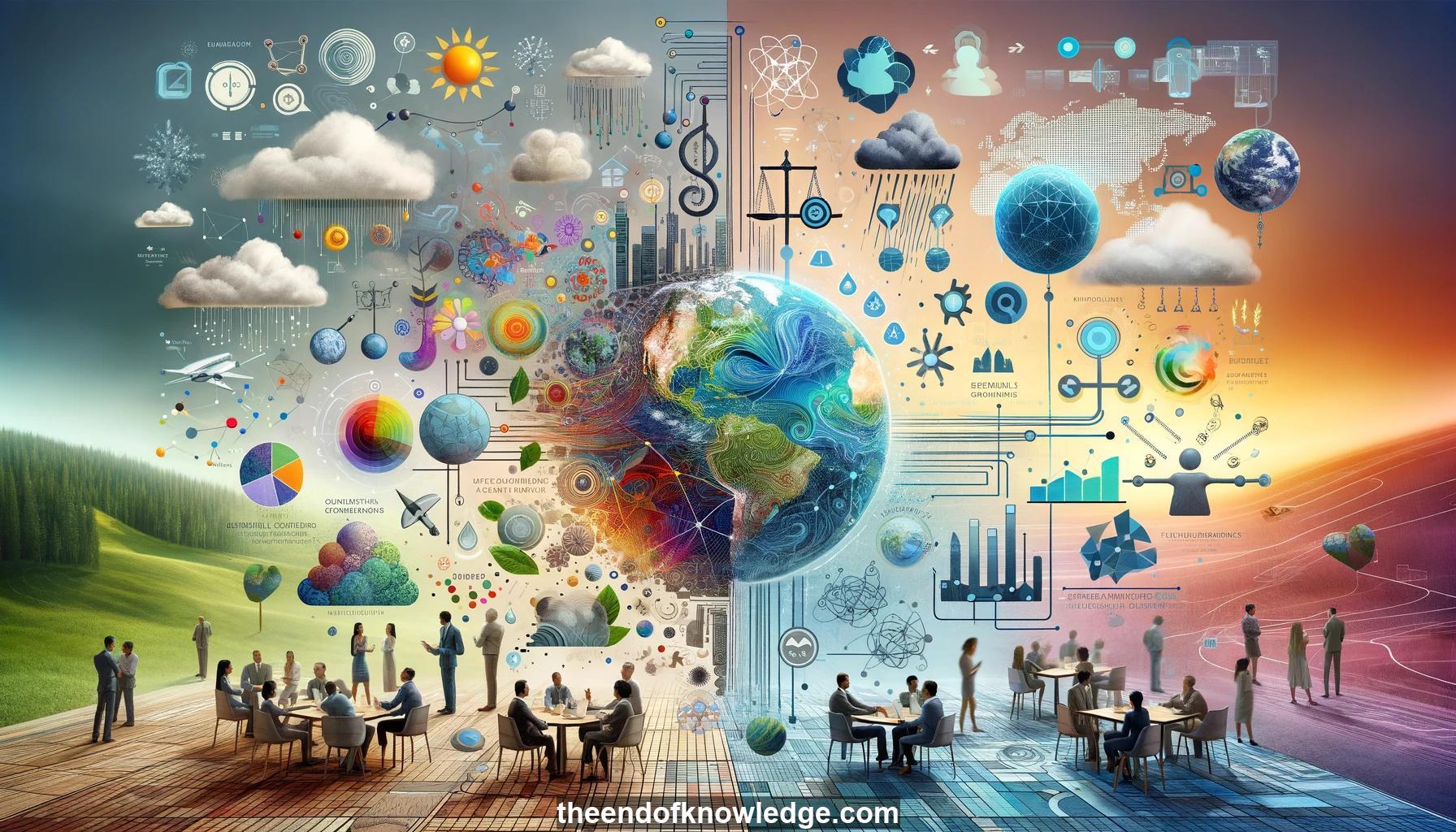 >
>
Concept Graph & Resume using Claude 3.5 Sonnet | Chat GPT4o | Llama 3:
Resume:
1.- Shakir Mohamed, a prominent AI researcher, discusses machine learning with social purpose, connecting it to our planet and each other.
2.- Shakir's work focuses on weather and climate, science and society, global community building, and diversity and equity.
3.- Evidence shows probabilistic machine learning is important and should remain a core investment area for the research community.
4.- Mixing generative models with earth systems research creates pathways to impact, uncovers new questions, builds products, and connects to pressing needs.
5.- Research in technology and society should be undertaken together, deepening a socio-technical AI research portfolio.
6.- A more global AI field and industry can shift machine learning to be more general, magnifying social purpose.
7.- Earth system models, representing planetary processes, are central tools for understanding our changing planet and living sustainably.
8.- Machine learning is making inroads in medium-range global weather forecasting, with applications across commercial, industrial and social needs.
9.- Scorecards visually summarize model performance across variables, metrics, and important data subsets, showing ML can outperform operational weather systems.
10.- Rapid advances are being made in ML for weather, opening up new ways to support vital weather-dependent decision-making.
11.- Better forecasts can sometimes lead to greater harm and vulnerability for poor and marginalized communities.
12.- No technical system exists independently of the social world; the social and technical are enmeshed at every level.
13.- Socio-technical AI adapts the conceptual apertures used in technical work to account for a wider set of social considerations.
14.- An ecosystem view of AI exposes different levels (research, deployment, governance, cooperation) for new research directions and responsible actions.
15.- Including affected communities in AI design through participatory approaches places work on stronger ethical foundations.
16.- Theoretical and methodological ML research, like on generative model evaluation, is vital for enabling claims of social purpose.
17.- The intersection of health and environment is another area of social purpose needing further ML research.
18.- Analyzing model fairness across demographic subgroups is common, but many human characteristics are unknowable, requiring new fairness approaches.
19.- Diverse groups of researchers can leverage their identities and experiences to explore solutions for complex socio-technical ML problems.
20.- Meaningful intercultural dialogue and strengthening varied political communities globally are key to making AI development more equitable.
21.- Grassroots organizations in Africa and worldwide are building communities and movements that support locally-grounded AI dialogue and transformation.
22.- The field of AI is becoming more global due to the committed work of grassroots groups; continued support is vital.
23.- Researchers should motivate their work through a drive for social purpose, expanding the view of their responsibilities.
24.- An ecosystem perspective allows researchers to identify where and how to intervene to reshape the trajectory of AI developments.
25.- Support for grassroots AI initiatives is working to expand global participation in AI; more can still be done.
26.- Once rainfall is predicted, hydrology models are needed to simulate water flow and flooding; an area for future work.
27.- Open-sourcing AI models takes time to ensure reproducibility but enables independent assessment by environmental agencies.
28.- Participatory AI is an ongoing process where affected communities can change the direction of the work, not just deployment.
29.- Public experimentation with AI models raises socio-technical questions around watermarking, open-source, communication, and the basis of value systems.
30.- Machine learning researchers, especially students, should break out of narrow domains and be open to entirely shifting the field.
Knowledge Vault built byDavid Vivancos 2024